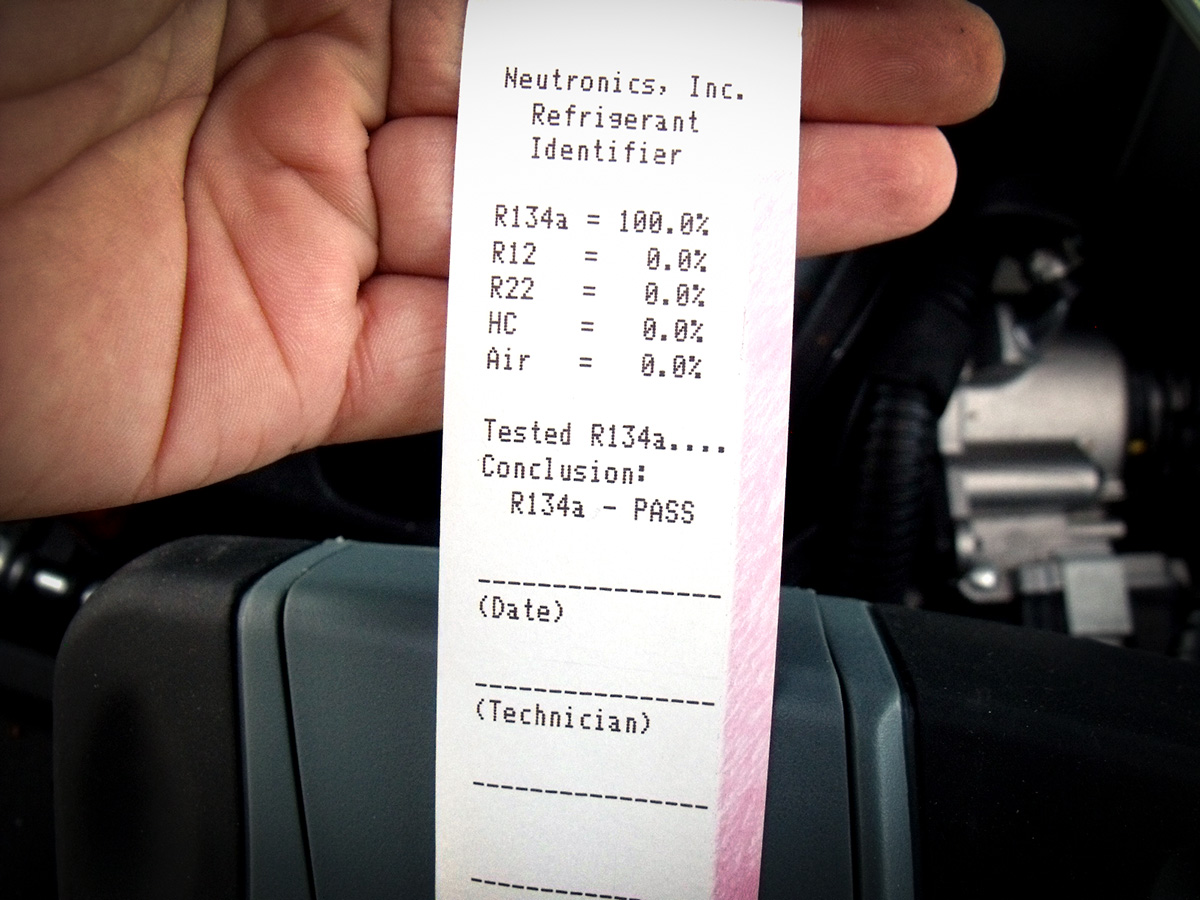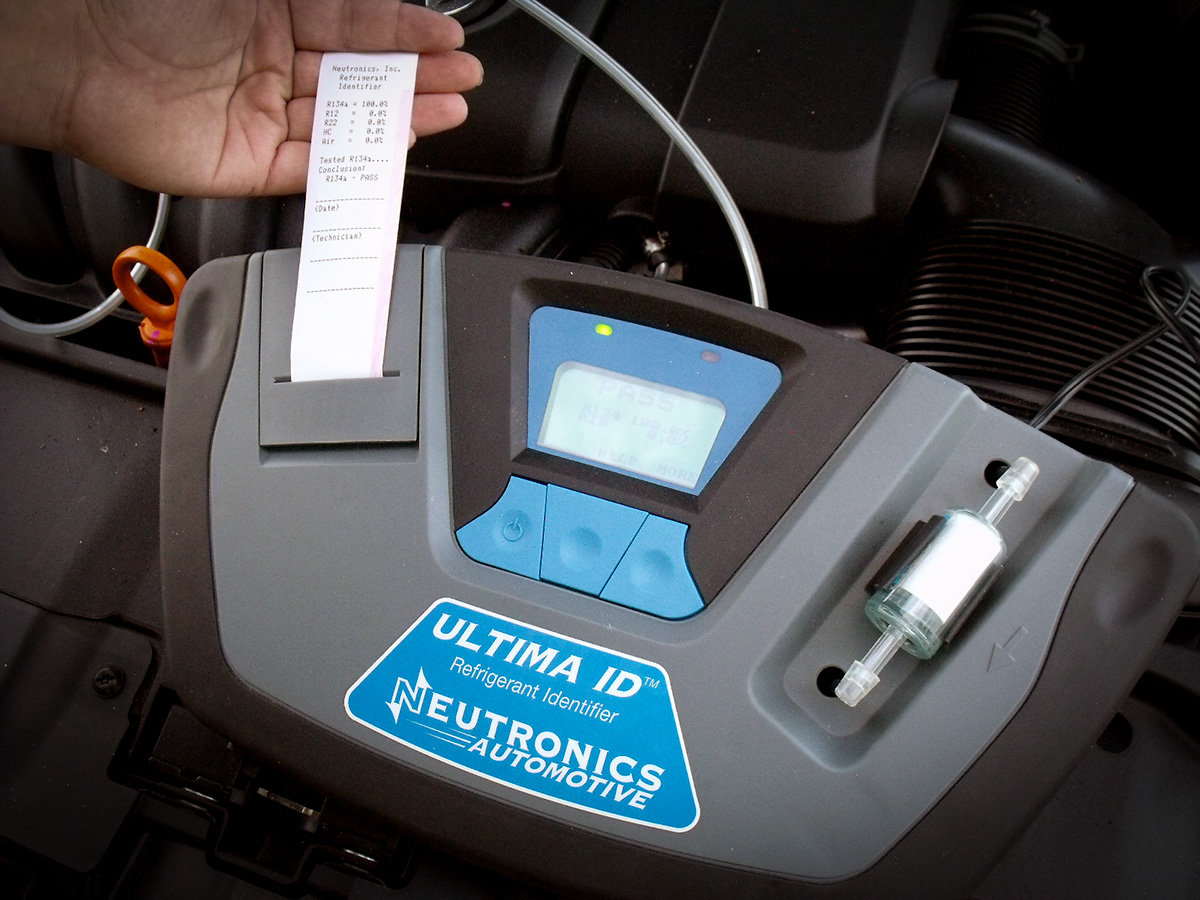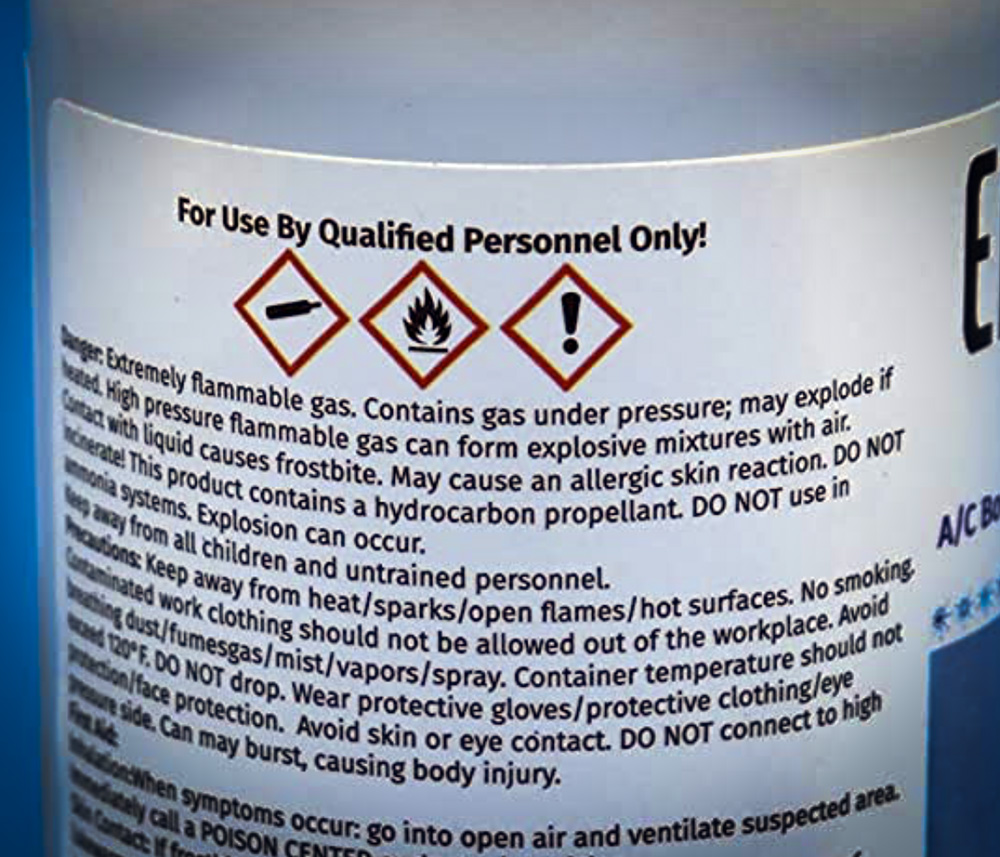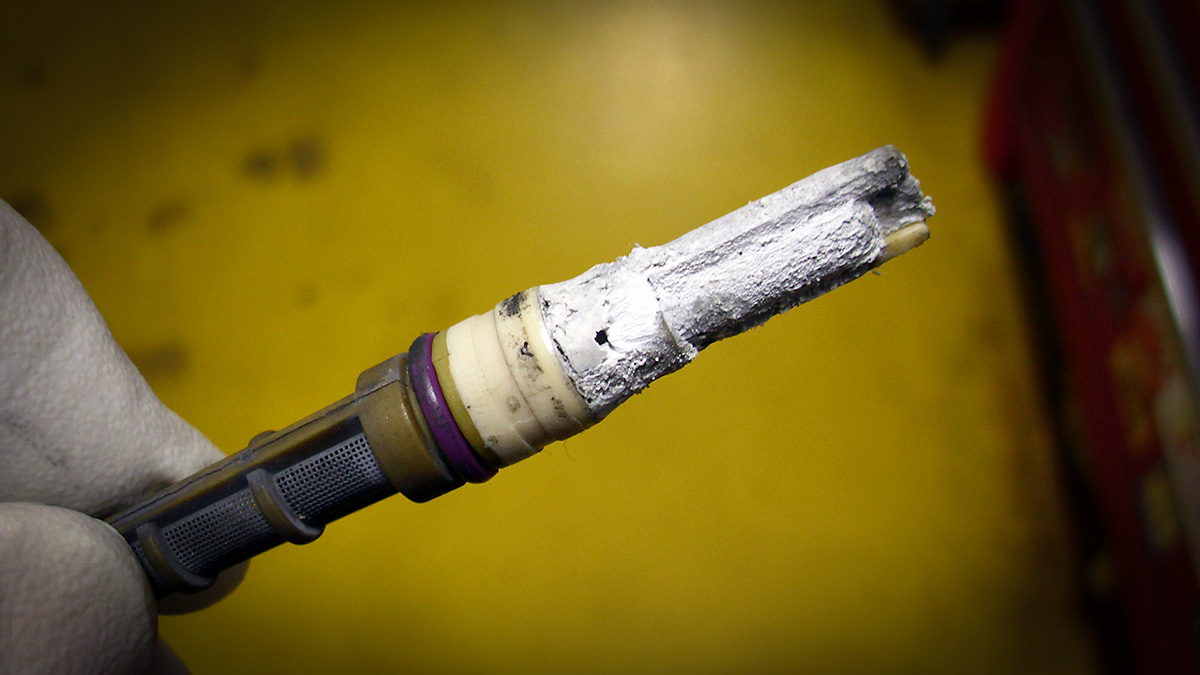“Drive it ‘til the wheels fall off” isn’t the safest decision. So when does it end?

If you’ve already invested in RRR (recovery/recycle/recharge) machine equipment necessary to service vehicles with R1234yf, you may have also already learned that performing a refrigerant identification test prior to recovering what is in the customer’s vehicle is mandatory on these machines. But you may be surprised to learn that protecting the purity of a very expensive refrigerant isn’t the primary reason for doing so. Instead, identifying the refrigerant prevents the introduction of refrigerants into your equipment and eventually into your customers’ vehicles that could prove harmful to both.
While this is not required when servicing older R134a systems, testing the quality of the charge prior to recovery has been a best practice recommended by the Mobile Air Climate Systems Association for many years, and for the same reasons.
Sadly, the sale of counterfeit refrigerants has been a global problem for many years. As the price of R134a and R1234yf continue to climb, it becomes increasingly likely you’ll see these counterfeits show up in your markets.

If you do have a mixture of refrigerants, you’ll need to use a recovery only machine and send out the contaminated gas for reclamation. Photo: Peter F Meier.
Surprisingly, counterfeits aren’t the primary cause of contaminated charges. Well-meaning DIYers, relying on the advice of their favorite YouTube-certified mechanic, may try alternatives to the refrigerant specified for their vehicle in an attempt to improve cooling or save money. After all, a 12 ounce can of R1234yf retails for about $70 at the time of this writing. According to at least one YouTube automotive “professional,” the same size can of keyboard aerosol duster is less than $10 and works just fine as a replacement.
There are also products being offered through major retailers that give the impression that they can be used to recharge both R134a and R1234yf systems. These alternatives, however, are blend refrigerants that use hydrocarbon propellants (typically propane) and are extremely flammable.
Read some of the consumer reviews and see just how wonderful most consumers think these products are and how many are using them as substitutes for the recommended refrigerant. Then remember that it is these same individuals that show up to your door when something goes wrong with the air conditioning!

This tool detects different refrigerants. There are a range of models that are all effective in providing that “go/no-go” decision. Photo: Peter F Meier.
Nearly any gas can be used as a refrigerant. The propellant in keyboard duster, for example, is R152a and is, indeed, on the EPA SNAP (Significant New Alternatives Policy) list of approved refrigerants. Propane is also a highly effective refrigerant and is used in some stationary commercial applications. However, neither of these products is approved for use in any motor vehicle system nor is either approved by any auto manufacturer. The high flammability of these products could result in a safety issue for you or your technicians during service, as well as become a potential liability if it finds its way into a customer’s car via your shop’s machine. Imagine a leaking evaporator core in a system filled with this stuff. One inadvertent spark under the dash is enough to cause mayhem.

The front of the can says it’s compatible with R1234yf systems but contains a potentially dangerous hydrocarbon blend that no manufacturer approves for use. Photo: Peter F Meier.
The second test to perform once you’ve confirmed the quality of the refrigerant charge itself is inspecting for the presence of sealant in the system. Those same cans of refrigerant for sale on the shelf at the big box store or online at the major retailers often also contain a sealant additive. These sealants can cause problems in the operation of the system and no OEM recommends or allows the use of sealants in their vehicles. Sealant can lead to internal blockage of lines and solenoid valves within your recovery equipment that will bring the machine to a dead stop, requiring potentially expensive repairs before it’s back online again. That also means lost revenue from work that must be turned away until the repairs are completed.
Sealant test kits are inexpensive and simple to use, taking no more than a few minutes. While most systems you check may be sealant free, it only takes the one that slips by unnoticed to ruin your day and put the bite on your wallet! You may even want to consider investing in AirSept’s Recycle Guard. It goes in line with your recovery machine and filters out sealants and small contaminants before it gets to your equipment, allowing you to safely service a system contaminated with sealant rather than turn the job away.

Sealant hardens in the presence of moisture, no matter where it might be. Notice how this orifice tube restriction is on the orifice side and not the screen side, as you might normally see. Photo: Peter F Meier.
Identifying refrigerant is mandatory when using R1234yf RRR machines, but it’s still your call when dealing with the older refrigerant systems. However, I think you can see that performing both tests prior to connecting to your customers’ cars just makes good sense. It protects your investment in product and equipment, it protects you and your techs from potential safety concerns during service. Analyzing what’s coming into your RRR machine also protects your customers and their families from potential hazards resulting from the presence of extremely flammable gas.
The articles and other content contained on this site may contain links to third party websites. By clicking them, you consent to Dorman’s Website Use Agreement.
Participation in this forum is subject to Dorman’s Website Terms & Conditions. Please read our Comment Policy before commenting.